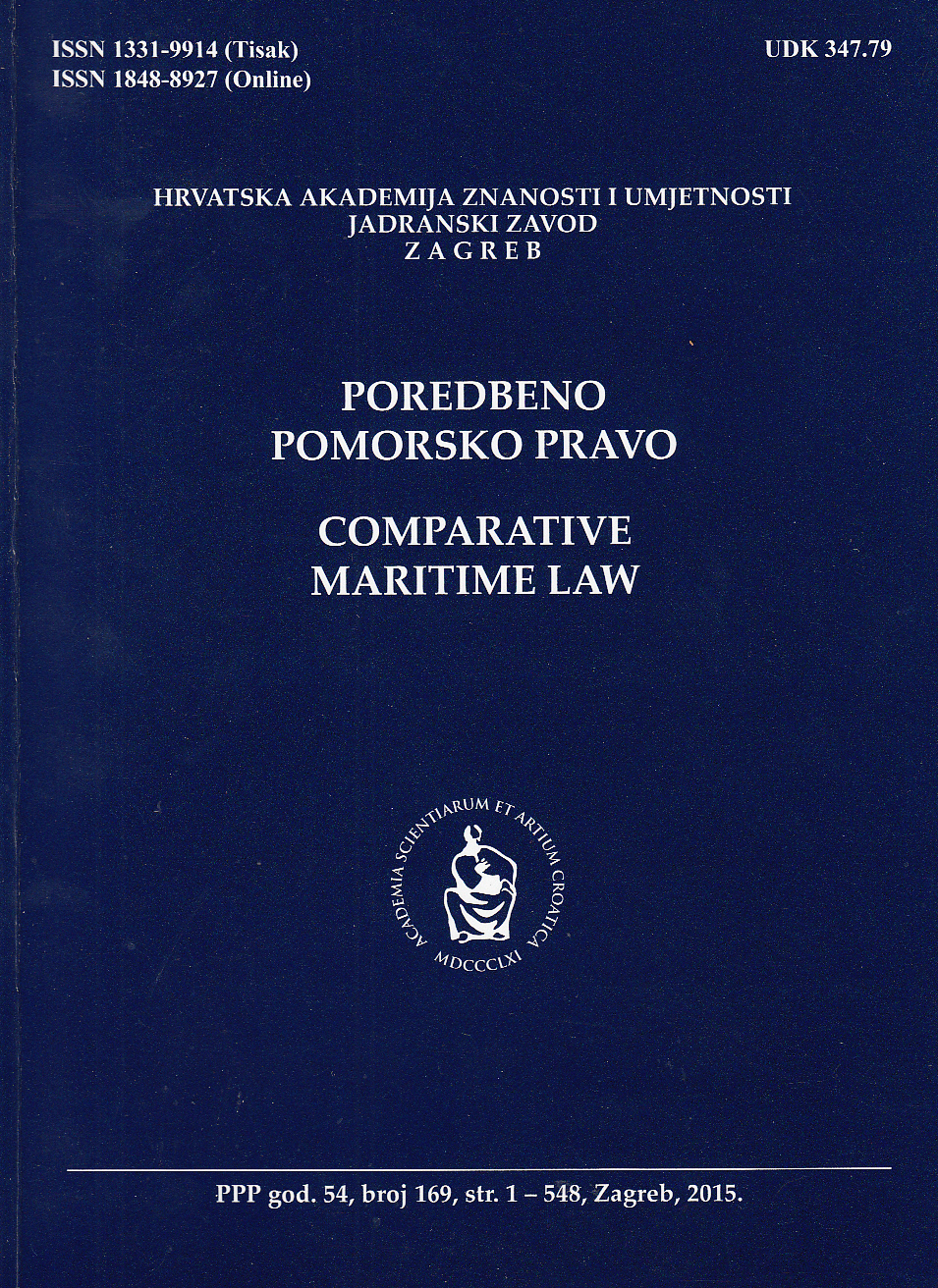Osiguranje pomoraca prema novoj konvenciji o radu pomoraca
Crewing insurance under the Maritime Labour Convention, 2006
Author(s): Ranka Petrinović, Ivana LovrićSubject(s): Maritime Law, Commercial Law
Published by: Hrvatska akademija znanosti i umjetnosti
Keywords: Maritime Labour Convention (2006); crew - insurance; repatriation; shipowner's liability; seafarers; P and I clubs; national legislation;
Summary/Abstract: The Maritime Labour Convention (MLC) was adopted in Geneva in 2006, and entered into force in August 2013. The Convention represents the consolidation and modernization of the standards set in as many as 37 conventions previously adopted by the ILO. The Republic of Croatia ratified the Convention in February 2010, and has partially aligned its national legislation with its provisions. Almost all aspects of seafarers’ life and work are foreseen by the MLC. All Member State ships shall have a maritime labour certificate as prima facie evidence that the requirements of this Convention have been met. The most important provisions of the Convention ensure minimum standards of health protection and medical care, so that seafarers are protected from financial consequences of sickness, injury or death occurring in connection with their employment. Each Member State shall therefore adopt law sand regulations requiring that owners of ships that fly its flag are responsible for seafarers’ health protection and medical care as foreseen by the MLC. These provisions are stipulated in Regulation 4.2. under the heading ''Shipowners’ liability''. According to these provisions, shipowners shall either be liable to bear medical care costs or shall have to provide financial security for these costs. Furthermore, each Member State shall require ships that fly its flag to provide financial security for the costs of seafarers’ repatriation (Standard 2.5), and to ensure that seafarers are compensated when a ship is lost or has foundered (Standard 2.6). The paper describes and analyzes the insurance system provided by the Maritime Labour Convention. The Convention does not expressly require compulsory liability insurance, but the insurance is a convenient way of fulfilling some of its requirements. It differs from the CLC and the Bunkers Convention that contain provisions on compulsory insurance, and also give a third injured party the right for a direct claim towards the liability insurer. The Convention’s insurance system is defined in a very broad manner, which is insufficiently precise so it raises many questions. Particularly interesting are the following: What is the legal nature of this insurance? Is it life, injury or liability insurance? Who is the insurer, and who the insured? Who has an insurable interest, and what is the nature of that interest? Which document ensures the fulfilment of the Convention requirements regarding the security of seafarers (financial security requirements)? Extremely important is the issue concerning a direct action against an insurer, as well as the issue of the applicable law and jurisdiction. All these issues will be addressed and explained in the paper on the basis of current knowledge and experience.
Journal: Poredbeno pomorsko pravo
- Issue Year: 54/2015
- Issue No: 169
- Page Range: 145-170
- Page Count: 26
- Language: Croatian

